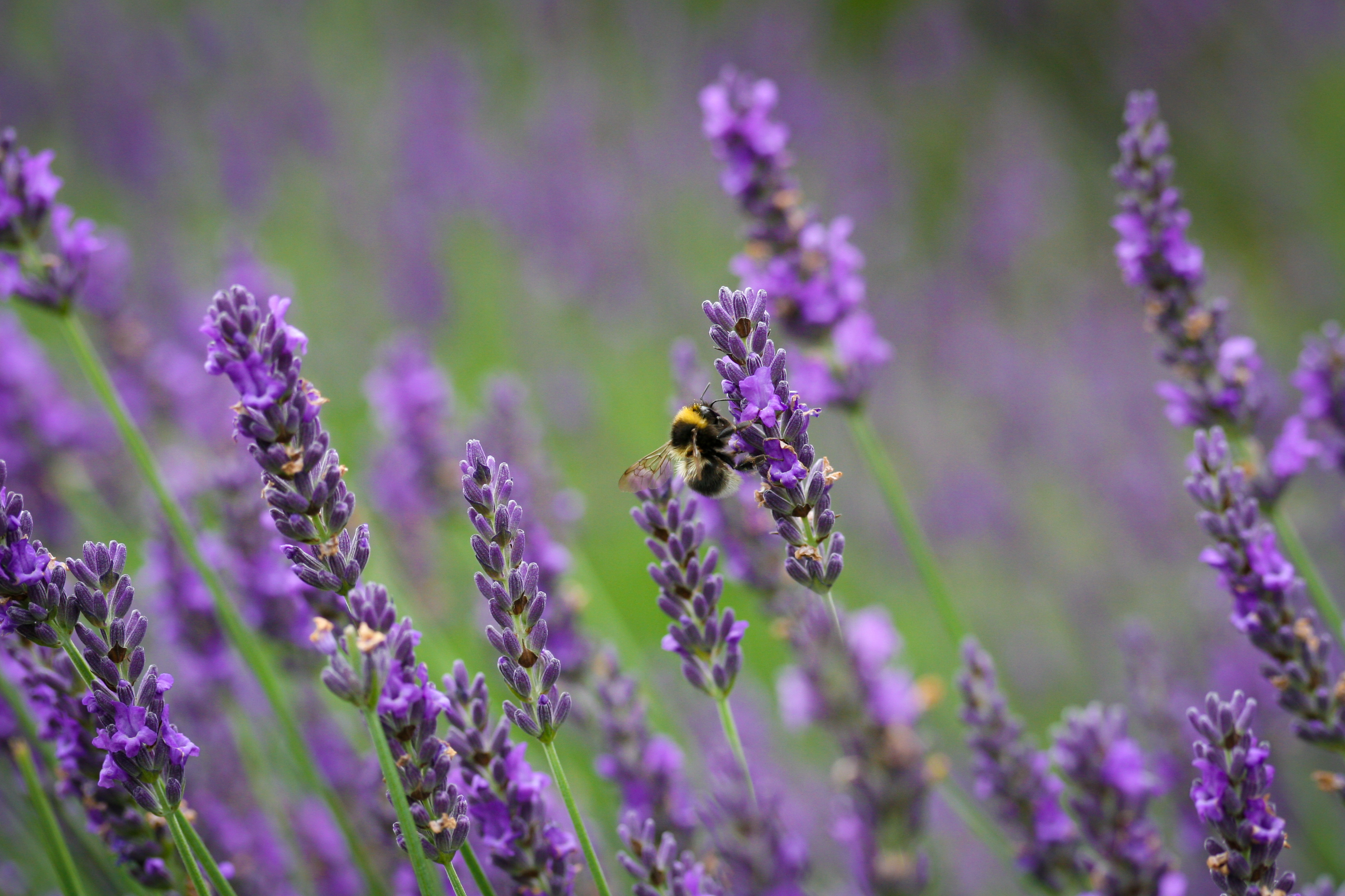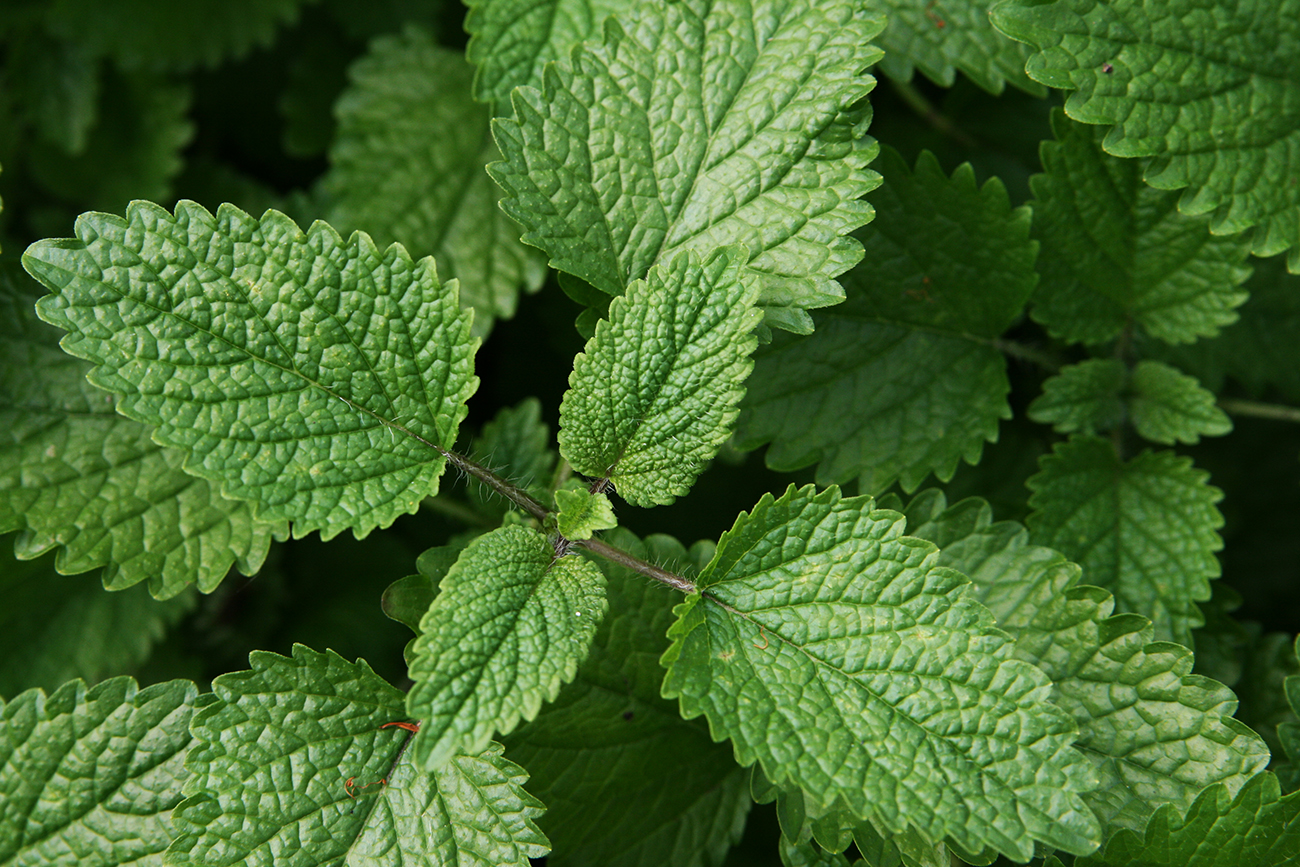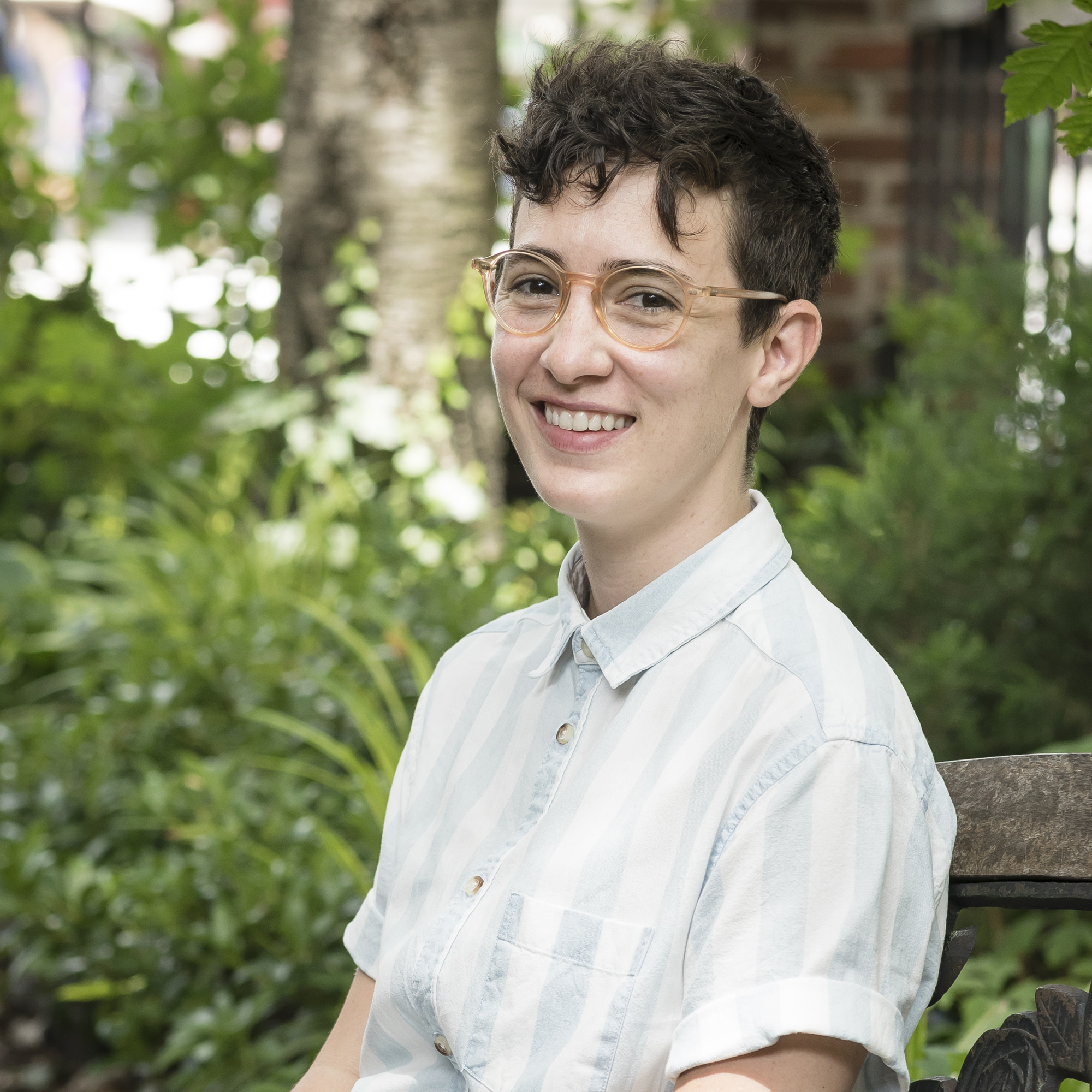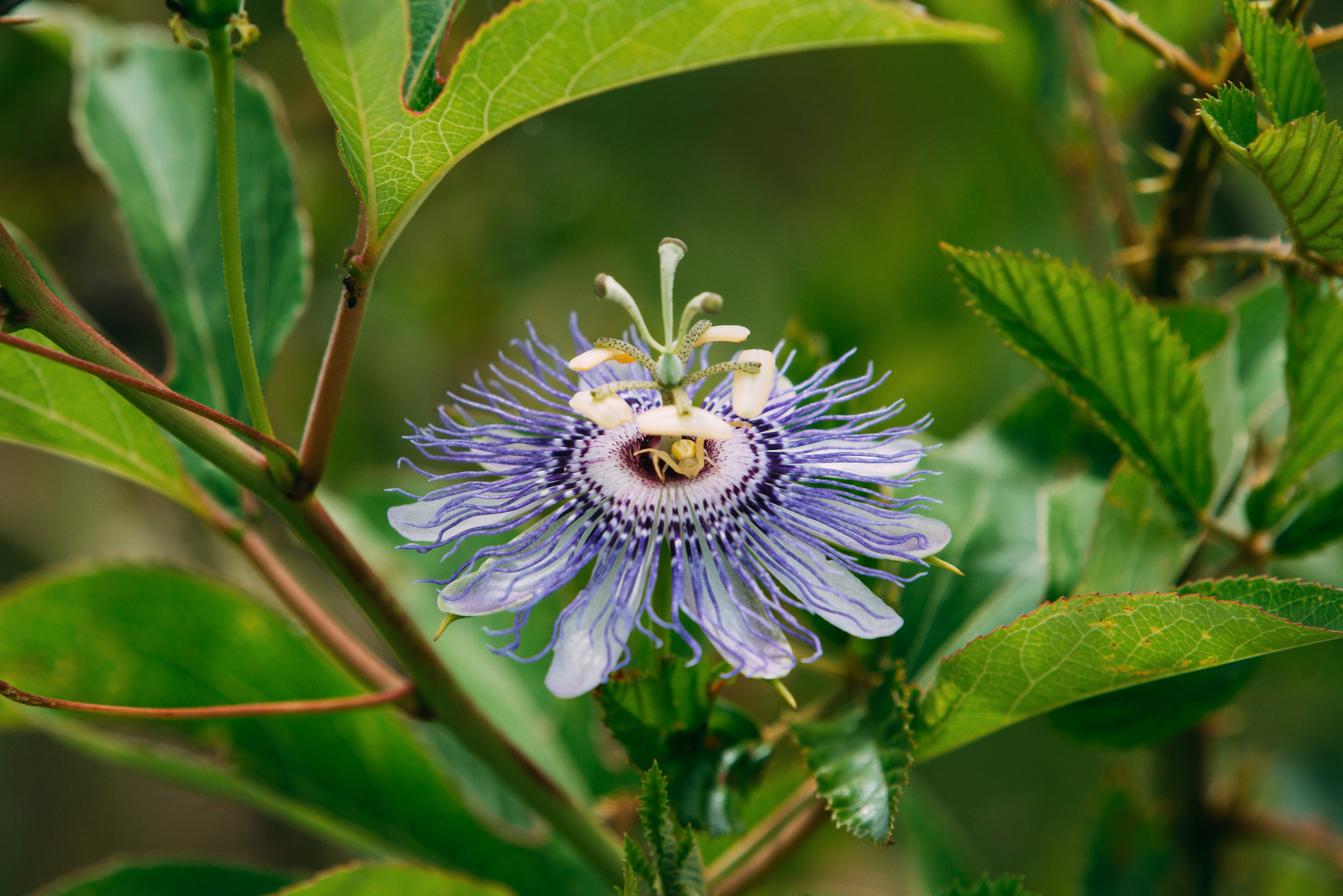
What Is An “End-of-Life” Doula?
“There is this idea that we know how to die, that it’s in fact a part of life, and that at an earlier point– not even that long ago– death was very much tended to in the home and was not something that was considered only medicalized,” iele paloumpis, an end-of-life doula, tells us as we sit under the shaded boughs of the Hoyt Street Garden. paloumpis, who identifies with the gender-neutral pronoun they, is framed by a mural of vast trees as they speak– an unintentional yet appropriately-fitting metaphor for life and what comes after.
“A lot of things in fairly recent history have removed our culture and society from the death and dying process, which has created more ignorance around how things happen,” paloumpis continues.
“As end-of-life workers, we have a responsibility to help people understand that this is something that they can do, and to give the power back to them…[Dying] is an innate experience of life.”
In order to make the end-of-life process a less traumatic and more supportive one, paloumpis offers a range of services, from mundane tasks like calling insurance companies to more abstract exercises like “holding space” and helping clients process emotions.
paloumpis also incorporates their herbalist training, preparing hawthorne for heart energy, licorice for adrenals, and lemon balm, passion flower, and holy basil for anxiety and stress. For patients past the point of ingesting herbs, paloumpis creates salves; aromatherapy is another useful tool they employ.
“Especially if the person’s in a hospice setting, or a nursing home, or a medical facility of some kind, there can be a lot of unpleasant smells that come up. Simply working with lavender can just bliss everyone out in a way that feels very important,” paloumpis adds.
While paloumpis is often hired for their services by family and friends (rather than the person nearing the end of their life), they offer their work to anyone occupying the space. Though not a replacement for medical professionals, end-of-life doulas can help review and reinforce information from medical professionals, offering time and care in a way that official staff may not have the capacity to.
In this way, paloumpis sees their work as not just happening at the bedside of the patient, but as extending beyond, in some small way healing the medical system as a whole.
“We’re not just doula-ing the patient, and we’re not just doula-ing the family and the loved ones– we’re also offering these doula services to the medical care providers, to make their lives easier as well,” paloumpis explains.
“If I’m well-educated and I’m able to be a supportive presence to the family who’s going through this traumatic time and answer some of their questions, that would ideally relieve the nurses from having to get inundated with more work.”

Lavender’s calming properties make it an ideal choice for atmospheric aromatherapy.
paloumpis sees this gesture as necessary, part of a larger need to mend the oft-overlooked groups operating in and around healthcare. As paloumpis points out, hospice nurses have one of the highest suicide rates in the nation.
“Hospice nurses are incredibly overworked, and they’re seeing a lot of trauma,” paloumpis says, mentioning that in NYC, a small team of hospice nurses can often see upwards of 30 deaths in a week.
“There is not the infrastructure for the nurses to do all the self-care stuff that doulas are creating for ourselves… Nurses and the medical care providers largely don’t have that, or it’s not emphasized, or they literally don’t have the time.”
The source of this problem, paloumpis posits, is in the fundamental fabric of our daily lives.
“We’re living in this incredibly capitalist society,” paloumpis states. “I really think that people who truly want to be healers, including the Western allopathic doctors, are at a loss to be able to truly give of themselves in the way they want to, largely because of this capitalist and racist and classist system that we are in. It’s this machine of: ‘I need to charge X amount of dollars for this service that I want to provide to you’…Unfortunately in this capitalist system, the way that we determine value is through money, and that’s how you sustain your life.”
In an ideal world, paloumpis imagines more of a community supported model, where healers are maintained with housing and food rather than money, and are thereby able to provide complete care without concerns over coverage and funds.
This thread of community and integrated healing runs throughout paloumpis’s interview; as paloumpis observes, their end-of-life work is about creating healthier communities– not just for others but in their own life as well.
“I’m looking for more people who I share identity with to work with: people in my queer community, specifically trans people who are going through end-of-life processes,” paloumpis says. “End-of-life terminal illness is a very vulnerable process: all of your systems are breaking down and you need a lot of hands-on care.
Particularly for queer and even more so for trans people, it is vital that our medical care systems catch up to understand how to work with our bodies.
If you’re not working with culturally competent practitioners who are using the wrong pronouns for you or who are treating your body in a way that doesn’t feel like it’s honoring your experience as a queer person or a trans person, it’s all the more triggering and terrible.”
(In light of the economic disadvantages many queer and trans people face, paloumpis offers their services on a sliding-scale or pro-bono.)
Wrapped up in body politics, the often unseen toll of emotional labor, and America’s Puritan legacy of only dealing with problems alone and in private, much of paloumpis’s work operates in and around the notion of healing justice, itself intimately tied up in disability justice.
“Everyone, if you live long enough, will become disabled,” paloumpis states frankly. “People don’t think about that. People don’t think of themselves as becoming incapacitated in any way. People who are dying are certainly disabled in terms of physical impairments, from challenges in communicating to loss of muscle control or motor skills… It’s my belief that in thinking about disability we [need to] put the focus on it being a social problem rather than putting the focus being on ‘Oh, this person’s body is “failing” or “inadequate,”‘ or having judgment around what is ‘an able body.'”
But as paloumpis recognizes, these notions are deeply rooted in the mores of the Western medical establishment.
“‘To live at all costs’ is very pervasive,” paloumpis reflects. “There’s a lot of measures that are taken at the end of life to prolong someone’s life, rather than focusing on the quality of life.”
The desire for condition over longevity circles back to the heart of paloumpis’s work, echoing the question that stands at the center of what they do. Contemplating their work as a whole, paloumpis poses, “How do we allow people to die in a way that honors their humanity and honors their life?”
To learn more about iele paloumpis and their work, visit their website.
Curious about other doula work? Check out our interview with a post-partum doula.











































